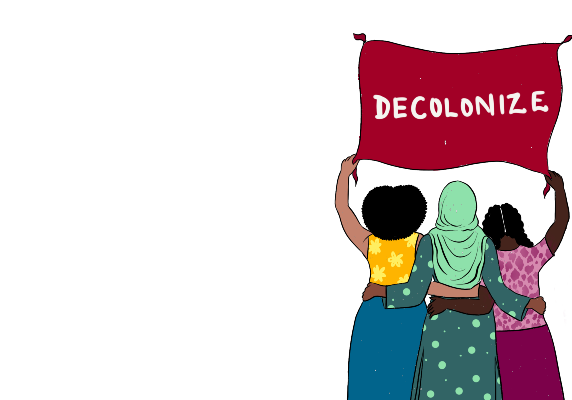It’s time to love the Bond Charter
The Bond Charter probably isn’t something you’re familiar with.
You may have heard whispers of it, at an Annual General Meeting (AGM) in days gone by; that it’s got something to do with being a Bond member. Or maybe you’ve even come across it – quite by accident – in an obscure corner of the Bond website; lonely and unloved.
In fact, the Bond Charter is central to all of Bond’s work, and an important document for our network. Over the years, it’s been made to work very hard, because Bond has always had a foundational document of one sort or another. At the very beginning, this document was called the Statement of Principles. It brought together member values and their approaches to development, such as ensuring that the results of their actions are sustainable or using responsible fundraising methods.
Then the noughties happened, and issues of organisational effectiveness rose up the agenda. This is when the Bond Board, membership and executives revised the Principles into the Bond Charter, much of which reflected the preoccupations of that period.
In its current form, the Charter attempts to bring coherence to a common vision, purpose, set of values and principles. It draws on a range of existing codes, norms, standards and guidelines, for example the The Universal Declaration of Human Rights or the Charity Governance Code. As one might expect from the sheer breadth of this approach, the Charter has become somewhat incoherent; as its values knock heads with standards, and principles battle with guidelines.
In need of an update
The Bond Charter was formally adopted at the 2012 Bond AGM. Since then, we’ve made a few ad-hoc updates to some of the principles; and we’ve added a couple of new ones as well, particularly around safeguarding (in 2018), and the use of imagery (in 2019). But nine years on, we all agree, that much of the Charter’s contents is starting to feel a bit dated, especially considering the sectors need to transform in response to safeguarding incidents or to support movements such as Black Lives Matters.
For example, the principle around non-discrimination, and its commitment to being “impartial”, no longer reflects the need for proactivity in the process of building inclusive cultures. Similarly, the shifting power dynamics of the sector, and the necessity to foster locally-led approaches to development, are severely underrepresented.
Making it relevant
Another issue is relevance: the Bond Charter has never been fundamental to our members’ sense of what it meant to be part of the Bond network. Let’s face it, a hotch-potch of values and standards was never going to provide an identity for what our network stands for. Neither was it going to be a document that Bond members could apply in their own organisations, and their work. And with all the additions that have been made, over the years, the coherence of the whole has been lost somewhat.
Subscribe to our newsletter
Our weekly email newsletter, Network News, is an indispensable weekly digest of the latest updates on funding, jobs, resources, news and learning opportunities in the international development sector.
Get Network NewsSo now we face a dual challenge: that of bringing the Charter up to date, and of making it useful and relevant. To this end, the Bond Board and executives have set out a process for revising the Charter. The aim is for it reflect the ambition and high standards Bond members have when it comes to delivering their work, and to demonstrate sector leadership in achieving this.
Building a new vision
Over the last 12 months, a Charter Steering Group, has undertaken the process of revision. Chaired by Zoe Abrams, from the Bond Board, the group includes volunteers from within the Bond membership. Together, we decided to take a values-based approach, rather than building the new Charter around a set of standards. This means it aims to reflect the fundamental believes that Bond members hold and to demonstrate judgement of what is important, rather than statements of conduct or a focus on compliance.
What we wanted to create was an identity for the Charter, which reflected what was distinct about our network; something that members could cohere around, and use to demonstrate their ambition to do better.
At the Bond 2021 AGM, on 23 November, we’ll be unveiling the first draft of the new Charter. And over the course of the next 12 months, we’ll be gathering feedback and views from our members, working groups and other partners. Look out for these engagement opportunities, and please take part. We want you to help us shape a set of values that defines what we stand for, and that we can all sign up to.
Category
News & viewsThemes
Bond news



